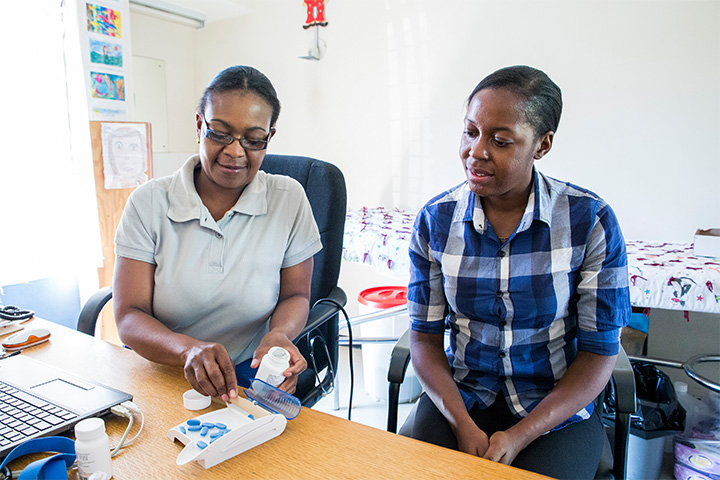Our research team was interested in finding out how three common HIV regimens compare at controlling viral suppression. They recruted patients starting therapy for the first time (those receiving efavirenz (EFV)) and those with history of treatment failure switching to dolutegravir (DTG) or ritonavir boosted atazanavir (ATV/r). They found that patients with history of treatment failure had lower virologic suppression rates compared to those starting for the first time who were 3.5 times more likely to be virologically suppressed, even though DTG is known to be efficient at suppressing viral replication. The odds of virologic suppression increased with age and better immune status at the time of starting/switching treatment, and male patients were less likely to be suppressed than females.
Poster: Regimen and Suppression Rate

